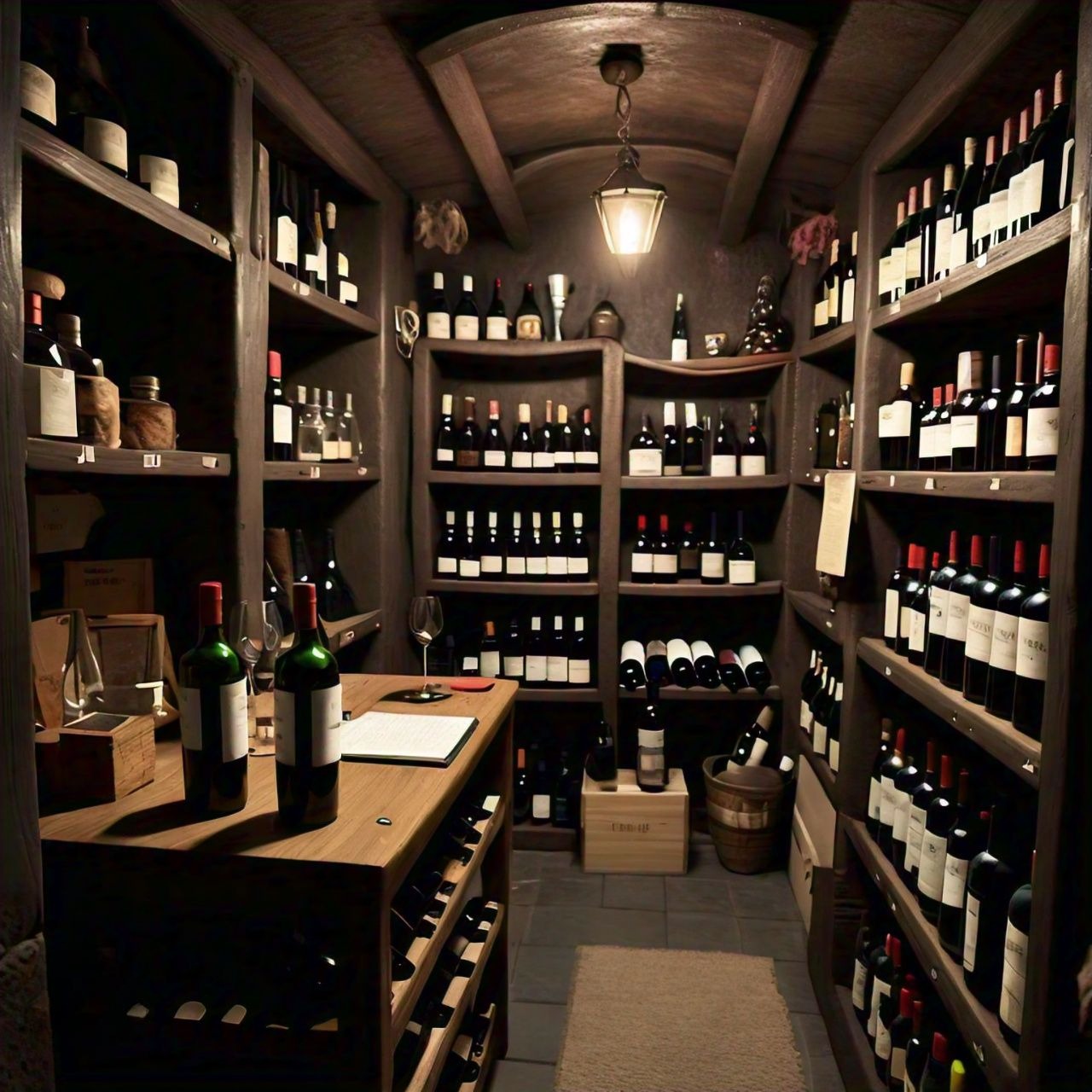Storing wine properly is crucial for maintaining its flavor and quality over time. Whether you’re a casual drinker or a budding collector, understanding the basics of wine storage will help ensure that your bottles age gracefully. In this guide, we’ll cover essential tips for beginners on how to store wine, including the best practices for temperature, humidity, and storage solutions.
1. Understand the Basics of Wine Storage
Proper wine storage is essential for preserving the taste and quality of your wine. Understanding the fundamental principles will help you make the best decisions for your collection.
Key Principles:
- Temperature: Wine should be stored at a consistent temperature, ideally between 45-65°F (7-18°C). Extreme temperatures can spoil wine, so avoid places with fluctuating temperatures.
- Humidity: Maintain a humidity level of around 70% to prevent corks from drying out and wine from oxidizing.
- Light: Keep wine away from direct sunlight and fluorescent light, as UV rays can degrade wine over time.
- Position: Store wine bottles on their side to keep the cork moist and prevent air from entering the bottle.
2. Choose the Right Storage Solutions
Selecting the appropriate storage solution can make a significant difference in how well your wine ages. Consider the following options based on your space and needs.
Storage Options:
- Wine Cellars: Ideal for serious collectors, wine cellars offer controlled environments for long-term storage.
- Wine Refrigerators: Compact and convenient, wine refrigerators provide consistent temperature and humidity control for smaller collections.
- Wine Racks: For casual storage, wine racks can be a stylish and functional solution. Ensure they are placed in a cool, dark area.
- Wine Cabinets: These offer a blend of aesthetics and functionality, often including temperature control features.
Tips for Choosing:
- Space: Assess your available space and choose a solution that fits comfortably.
- Capacity: Consider how many bottles you plan to store and choose a unit with adequate capacity.
3. Maintain Optimal Storage Conditions
Once you’ve set up your storage solution, maintaining optimal conditions is crucial for the longevity of your wine.
Maintenance Tips:
- Monitor Temperature and Humidity: Use a thermometer and hygrometer to regularly check the temperature and humidity levels.
- Avoid Vibrations: Store wine in a location free from vibrations, as they can disturb the sediment and affect the wine’s aging process.
- Clean Storage Area: Keep your storage area clean and free from mold or mildew, which can affect the wine’s quality.
Troubleshooting:
- Temperature Fluctuations: If you notice temperature changes, consider investing in a temperature-controlled unit.
- Humidity Issues: Use a humidifier or dehumidifier if your storage area is too dry or too damp.
4. Tips for Storing Different Types of Wine
Different types of wine may have slightly different storage needs. Understanding these can help ensure each bottle is stored correctly.
Red Wine:
- Temperature: Store at slightly higher temperatures, around 55-65°F (13-18°C).
- Aging: Red wines often benefit from longer aging periods.
White Wine:
- Temperature: Store at cooler temperatures, around 45-55°F (7-13°C).
- Aging: White wines typically age more quickly than reds.
Sparkling Wine:
- Temperature: Keep chilled at around 45°F (7°C).
- Position: Store upright to prevent the cork from drying out.
5. Common Mistakes to Avoid
Avoiding common mistakes can help preserve your wine collection and ensure it ages properly.
Mistakes to Avoid:
- Storing Wine in the Kitchen: The kitchen’s fluctuating temperatures can spoil wine.
- Placing Wine Near Windows: UV rays can damage wine.
- Ignoring Humidity Levels: Low humidity can dry out corks and lead to oxidation.
Solutions:
- Designate a Specific Storage Area: Choose a dedicated space for wine storage, away from heat sources and light.
- Regular Checks: Periodically review your storage conditions to ensure they remain optimal.
Conclusion
Proper wine storage is key to preserving the quality and flavor of your wine collection. By understanding the basics, choosing the right storage solutions, maintaining optimal conditions, and avoiding common mistakes, you can ensure that your wine ages gracefully and is always ready to be enjoyed. Start implementing these tips today to enhance your wine storage practices!



























Leave a Reply